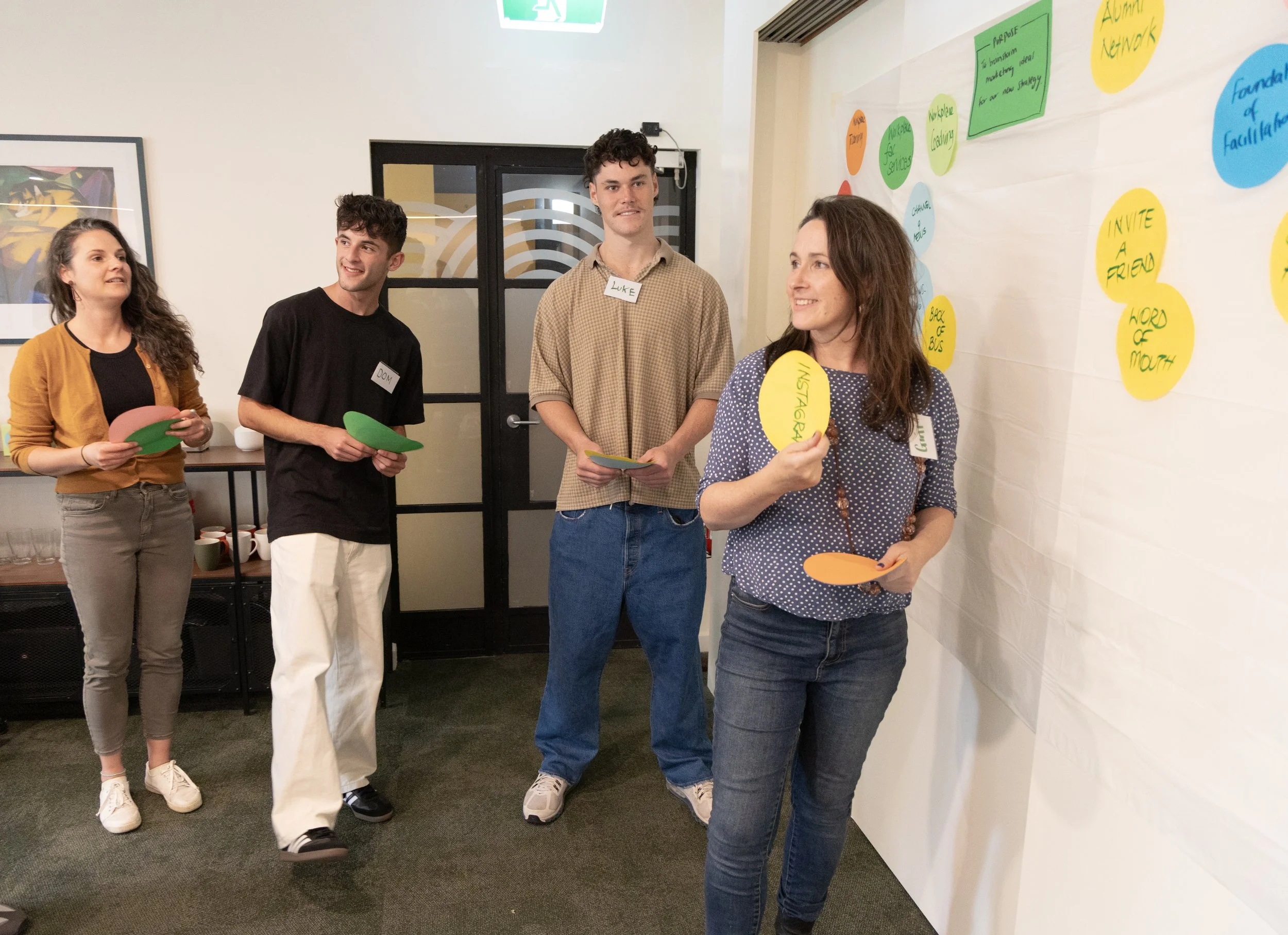Facilitation coaching
Transform your facilitation practice with our facilitation coaching. Our experience facilitators act as mentors and guides, providing one-on-one support to build your confidence and skill as a facilitator.
Why get facilitation coaching?
Whether you're looking to refine your skills, overcome obstacles, design complex workshops or achieve specific goals our coaching will help you to build confidence in your abilities and support you to navigate challenging situations.
Facilitation is often challenging, especially when dealing with difficult group dynamics or contentious topics. Our coaching offers facilitators a valuable opportunity for growth, development, and support, enabling them to facilitate more effectively and make a positive impact on the individuals and groups they work with.
Benefits of professional coaching
People who undertake coaching with us can expect to:
Have greater confidence in themselves as facilitative leaders.
Be able to choose appropriate techniques and approaches, try new ones, and know what to do if a technique isn’t working.
Develop skills and frameworks for the design of sessions.
Understand their own responses in situations, where these are coming from, the effect they have on their communication and the impact on others.
Develop a higher level of self-awareness, which in turn leads to better self-management and increased emotional resilience.
Leave with a ‘kit bag’ of additional tools to enrich their communication and team skills.
Have increased confidence to tackle the more challenging aspects of communication and facilitation (e.g. conflict, diversity and rank and power).
Understand how to better care for themselves, and their team.
Our approach to coaching
Our coaching practice is informed by Groupwork Centre’s Model of Collaborative Leadership.
-
At the centre of this model are the core values of facilitation.
-
These are ‘values with legs’ and provide specific guidance in our facilitation practice.
-
This is a focus of all our education programs and is essential to high quality practice. It is this awareness that enables you to remain conscious of your contribution to a situation, compassionate towards yourself and others, and able to act wisely in the face of challenges.
-
These are the myriad of skills required in facilitation. For example: welcoming differing ideas, holding spacc for hallenging conversations, negotiating and the giving and receiving of ‘hearable’ feedback.
-
We have developed a comprehensive array of practical, easy to use processes for collaborative practice. These include everything from strategic planning through to conflict resolution.
How will it work?
We start with an initial 20min discussion (free of charge). During the call we discover what you hope to achieve, and what you are looking for in a coach - and we decide if we are a good fit.
From there we discuss the practicalities of how we would like to work together, which will form the terms of our engagement and the coaching contract.
Coaching sessions are held online for 60-90 mins using zoom. The program will be tailored for each participant based on their needs and feedback.





